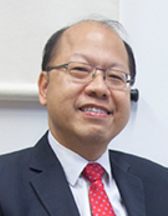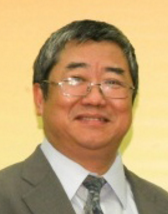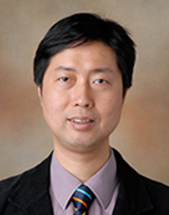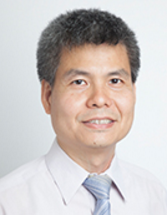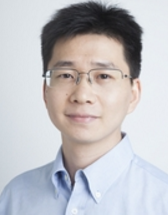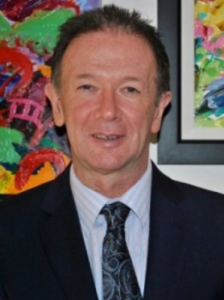Unlocking the Enigma of Chinese Mathematics Teaching Practices: Variation and the Secrets of the Virtuosos
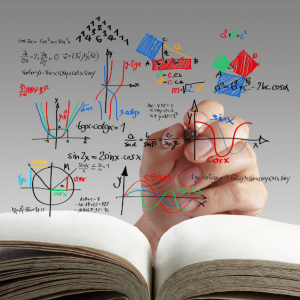
Speakers: Dr. Ming Fai Pang, Dr. Wing-wah Ki, Dr. Arthur Lee, Mr. Ka-Lok Wong and Dr. Gaowei Chen, Faculty of Education, HKU
Respondent: Prof. Kevin Niall Dunbar
Visiting Research Professor of the University of Hong Kong;
Director of the Laboratory for Complex Thinking, Creativity and Educational Neuroscience;
Professor of the Department of Human Development and Quantitative Methodology, College of Education, University of Maryland College Park
Date: January 7, 2016 (Thursday)
Time: 12:30-2:00 pm
Venue: Room 101 Runme Shaw Building [Sandwiches will be served with coffee]
Register
Abstract
Over the years, Chinese students have done exceptionally well in international comparisons of achievement in mathematics. Results from the 2012 PISA study showed that students from Shanghai convincingly outperformed students from all other participating countries in Mathematics. As a result, the Chinese way of teaching mathematics has attracted the world’s attention and some countries (e.g. the United Kingdom) have considered importing parts of these teaching practices to improve the mathematical skills of their schoolchildren. This ‘transplantation’, however, could be dangerous because it might be based on a superficial understanding.
Chinese mathematics classrooms are often portrayed by the media as adopting a whole-class teaching approach, in which advanced mathematics content is transmitted to students who are academically talented, motivated and obedient. This is followed by repetitive drilling, using harder problems in the form of exercises and tests during long school hours, thereby highlighting the importance of rote learning and the presumption that practice and memory make perfect. Previous research, however, suggests that Chinese teachers emphasise mathematical reasoning, and help students develop deep conceptual understanding and problem-solving abilities by consciously introducing systematic variations in problems and tasks. It seems, therefore, that what is meant by Chinese mathematics teaching practices is vague, yet a critical understanding is vital both to the Chinese culture and as an example for other cultures. We argue that even though we are far from being able to explain exactly what it is in terms of the pedagogy itself, there is something unique about the knowledge and practices of Chinese mathematics teachers.
In this presentation, we report a proposed research study which aims to develop a deeper understanding of Chinese mathematics teaching practices and to make its unique features and underlying scientific pedagogical principles more explicit and accessible to the world. We will critically examine the ways in which four state-selected expert teachers in mathematics – recipients of the ‘Teaching Excellence Award’ in Shanghai – design and implement lesson plans, and assessments thereof, to enable students of different academic abilities to learn mathematical concepts. We will observe how each expert teacher handles the same mathematics content to foster student learning in different schools, and particularly how each plans and enacts lessons for both academically talented and less-able students. Rather than adopting one single approach to examine classroom practices, which many previous studies have done, the study will draw upon multiple lenses or theories to simultaneously analyse the different aspects of mathematics teaching in a holistic manner.
About the speakers
Ming Fai Pang is an Associate Professor at the Faculty of Education of The University of Hong Kong. He specializes in phenomenography, variation theory and lesson/ learning studies. His research interests focus on learning and teaching and teacher education. Recently, he extends his research focus to financial literacy and education for sustainable development. He has been the Editor of the SSCI journal ‘Educational Research Review’ since 2010, and the Editorial Board Member of ‘Vocations and Learning’, ‘International Journal for Lesson and Learning Studies’ and ‘International Review of Economics Education’.
Wing-wah Ki is an Associate Professor at the Faculty of Education of The University of Hong Kong, in the areas of mathematics, technology and liberal studies education, and the use of information and communication technology for teacher collaborative learning. In recent years, his research extends to multilingual and intercultural education development, and the application of phenomenographic theory in learning.
Arthur Lee is a Lecturer in the Division of Mathematics and Science Education, Faculty of Education. His research interests include tools and task design in mathematics education, students’ conception in geometry and learning in dynamic geometry environments.
Ka-Lok Wong is a Senior Lecturer in the Division of Science and Mathematics Education in the Faculty of Education. He engages himself with mathematics classroom teaching as both a teacher educator and leader in the professional teacher organisation. His academic interests include classroom processes organised by questioning and task design, history and pedagogy of mathematics, and development of mathematics curriculum.
Gaowei Chen is an Assistant Professor in the Division of Learning, Development and Diversity in the Faculty of Education. His research interests include computer supported collaborative learning, classroom processes and learning analytics.
About the respondent
Kevin Niall Dunbar is Professor of Human Development and Quantitative Methodology at the University of Maryland in College Park, just outside of Washington, D.C. He is director of the Laboratory for Thinking, Reasoning & Educational Neuroscience. Dr. Dunbar is one of the co-founders of the discipline of Educational Neuroscience (2001), one of the co-founders of the National Science Foundation’s Science of Learning Centers at Dartmouth College (Hanover, N.H. USA), called the Center for Cognitive and Educational Neuroscience (CCEN; 2004), and his research pioneers the related disciplines of the Science of Learning and Educational Neuroscience.
Dr. Dunbar seeks to uncover the neural, genetic, and socio-cognitive processes, which, together, underlie human Learning, Discovery and Creativity in the Sciences, the Arts, as well as in the real world. Dr. Dunbar conducts research using contemporary neuroimaging and behavioral methodologies (fMRI, fNIRS, ERP), DNA Genotyping, and DNA Microarrays, as well as traditional educational and psychological research methods. He has conducted research on the development of scientific thinking abilities in children, students, and scientists, as well as the effects and impact of educational experience on the human brain. Currently, he is using functional Magnetic Resonance Imaging (fMRI) and functional Near Infra-red Spectroscopy (fNIRS) neuroimaging methodologies to unravel the ways that the human brain processes scientific information and how brain activity changes as a function of educational experience. Dr. Dunbar is further pioneering the use of DNA microarrays (also known as “genechips”) and DNA genotyping to understand the genetics of human learning and cognition. Using these converging approaches, he has been able to articulate key components of the scientific mind, scientific and critical thinking, and how scientists can most optimally harness these components of scientific thinking in effective ways. He has also uncovered key components of human learning that contemporary science education needs to address as we face a future with an increasingly demanding scientific world.
Professor Kevin Niall Dunbar has served on the Editorial boards of the Journal of Experimental Psychology, Cognitive Psychology, and the Canadian Journal of Experimental Psychology. He has been the recipient of innumerable university and public lecture invitations and has given invited keynote addresses in Canada, USA, France, Sweden, Germany, Italy, Belgium, and Japan. In 2013, for example, he was invited to speak at the National Academy of Sciences on science communication; the International European Gender Summit on gender and science, the Annual meeting of the American Psychological Society, and the NSF Emerging Frontiers in Engineering. His work is of broad interest to those in educational policy and education, and he has attracted esteemed invitations from scientists across multiple disciplines; for example, he has been invited to speak to Geophysical scientists, Biologists, Engineers, and Immunologists. In winter 2015, he has been invited to present a prestigious address at The London School of Economics.



